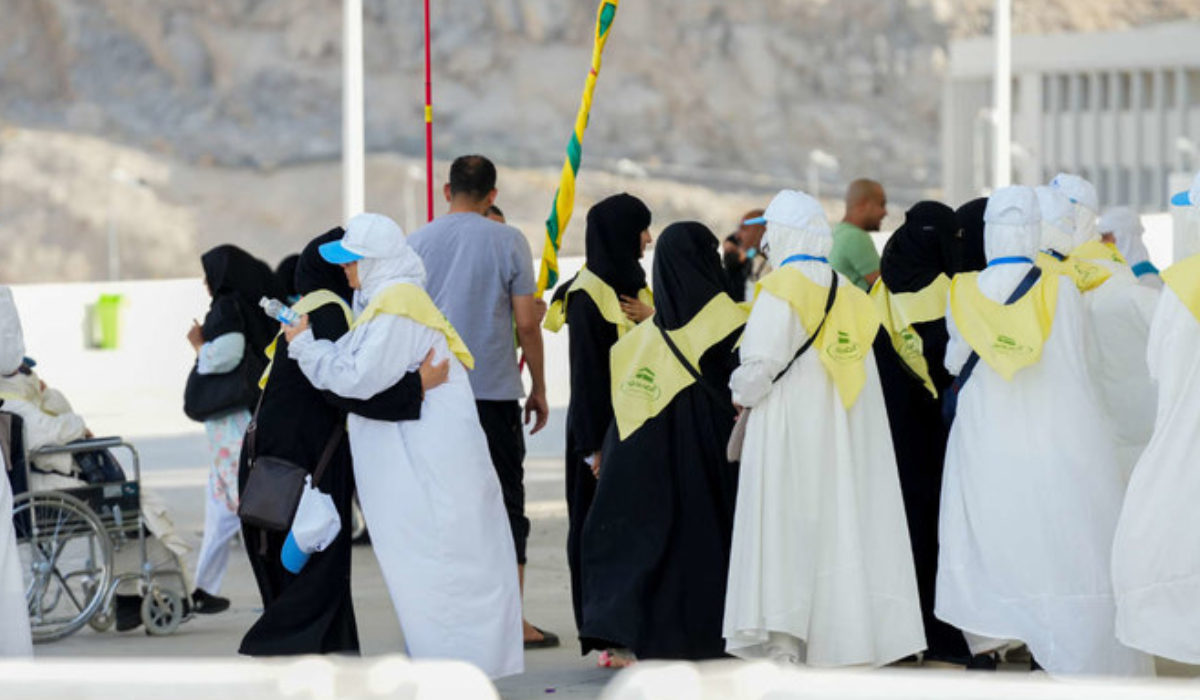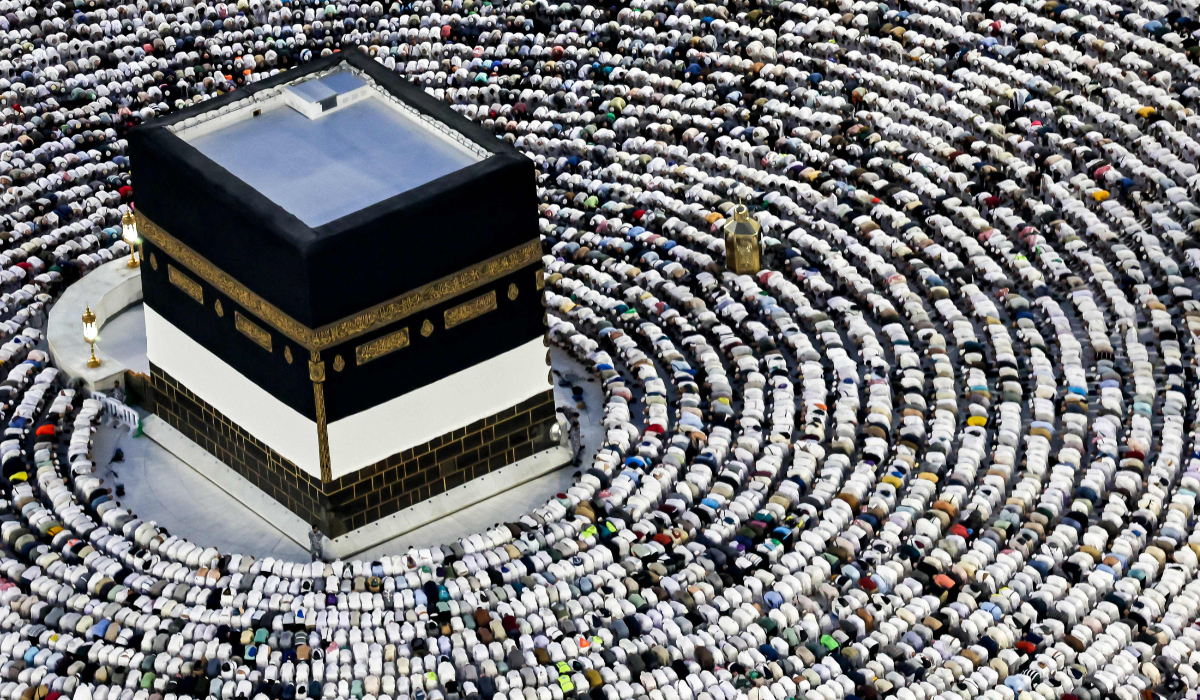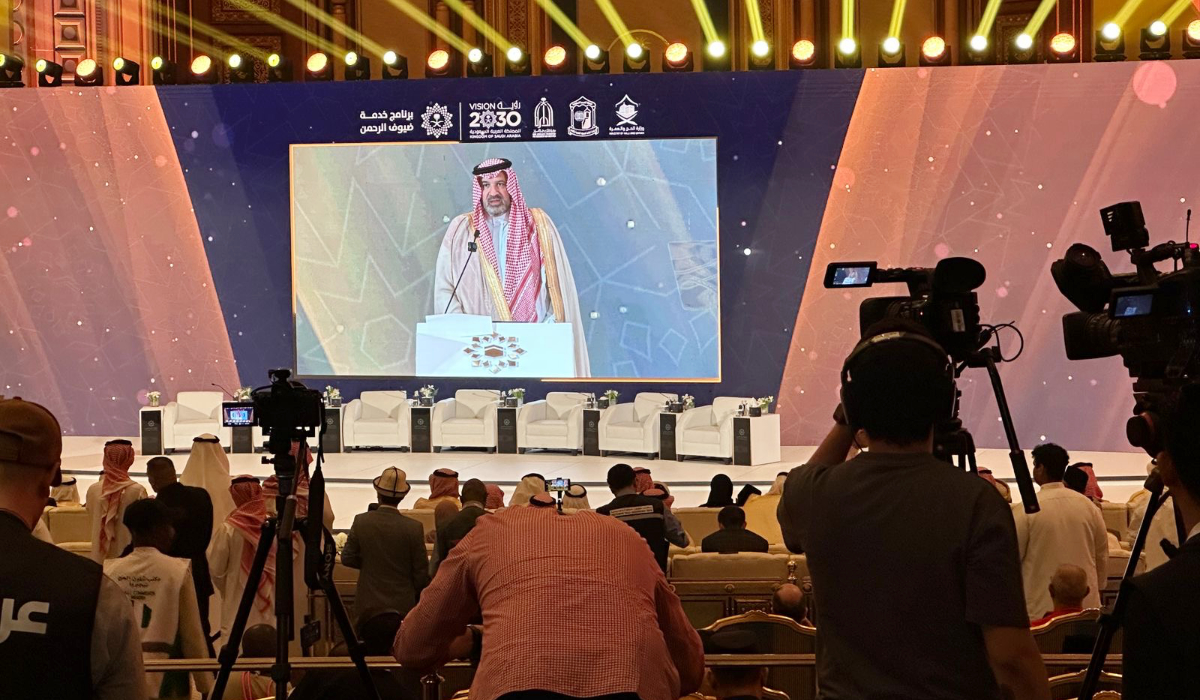RIYADH: A breast cancer survivor told Arab News about her journey during an event to raise awareness, and how she regained a “sense of control” by educating herself about treatment options.
Rania Turkasni, a breast cancer survivor and ambassador of the Zahra Breast Cancer Association, spoke to Arab News during the 2024 Zahra Walk for Breast Cancer Awareness, which was held at King Saud University on Oct. 26.
She said: “I believe knowledge is power, and by understanding the disease, its treatment, and the options available, I began to regain a sense of control.”
The goal of the Zahra awareness walk campaign, which is called One Step Ahead, is to provide support to women facing breast cancer, combat their sense of isolation, and promote early screening.
Turkasni said: “I researched every aspect of breast cancer, from the latest medications to emerging treatments. As I educated myself, I found that fear gradually gave way to confidence.”
She said that the shock was overwhelming when she received her diagnosis, and it felt as if the ground beneath her had been pulled away.
She added: “But in the midst of that initial fear, something inside me awakened — a determination to face this challenge head-on.”
Turkasni said that it was not merely knowledge that helped, but her unwavering faith in God.
“This faith kept me anchored, as I knew that no matter what happened I was not alone in this fight and that there was a higher purpose to my journey,” she added.
Organized by ZBCA, the event aims to increase understanding, encourage involvement, and assist individuals impacted by breast cancer.
Fatima Al-Sulami, vice president of marketing and financial resource development at ZBCA, told Arab News: “This walk is the largest we have organized, with 2,000 participants from the public.”
ZBCA is collaborating with the community to take proactive measures toward a future in which breast cancer is finally eradicated.
Al-Sulami added: “All proceeds from ticket sales will support Zahra’s fund, which aims to offer essential support and resources to individuals battling breast cancer.”
Breast cancer can be detected through various methods, including physical examination, mammogram, ultrasound, magnetic resonance imaging, or a biopsy, a medical procedure which takes tissue or cell samples for testing.
Early detection of breast cancer contributes significantly to raising recovery rate to more than 95 percent, according to Saudi Arabia’s Ministry of Health.
Turkasni said: “Throughout my treatment I also relied heavily on a variety of coping skills that I had to develop quickly. I maintained a positive outlook, focusing on what I could control rather than what I couldn’t.”
She would practice mindfulness and meditate, reminding herself daily to stay present and grounded.
She added: “Visualization also became a tool for me — imagining myself healthy, whole, and thriving helped me stay resilient during the hardest moments.”
Turkasni said that support from her friends and family provided another pillar of strength.
She said: “There were days when I felt weak, but knowing I had my loved ones by my side helped me push through the darkest times.”
She added that the community of survivors and friends she had connected with, both online and in person, became another source of strength and hope.
“They understood my struggles in ways no one else could,” Turkasni said.
She added that the environment she had created for herself played a significant role in her healing journey.
She said: “I surrounded myself with positivity, whether it was uplifting books, inspiring music, or the comforting presence of nature.
“Even on the hardest days I tried to find something to smile about, a moment of gratitude that kept my spirit alive.
“For anyone here today facing cancer, or for those supporting someone who is, I want to say that there is power in every step of this journey.”
Turkasni added that from fear and uncertainty to treatment and recovery, every moment is an opportunity to learn, grow, and strengthen spirit.
She said: “Cancer does not define us; it is our response to it that shapes our story.”
Turkasni said that survivors and patients should embrace every tool at their disposal: knowledge, faith, coping strategies, and the community.
The ROSHN Group has teamed up with ZBCA for the third consecutive year to raise awareness about breast cancer.
The partnership aims to support women in their fight against breast cancer, a collaboration supported by Princess Haifa bint Faisal Al-Saud and Ghada Al-Rumayan, chief marketing and communications officer from the ROSHN Group.




































